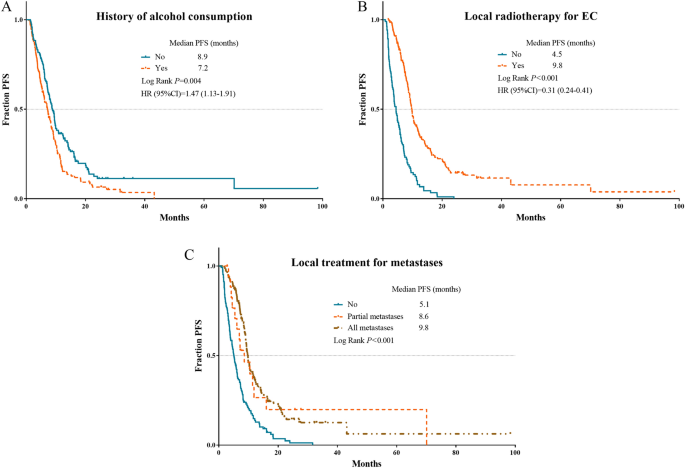
- Select a language for the TTS:
- UK English Female
- UK English Male
- US English Female
- US English Male
- Australian Female
- Australian Male
- Language selected: (auto detect) - EN
Play all audios:
What the heart wants, the brain wants too. A nutrient-rich diet is crucial for heart, vascular and brain health, as about 25% of our blood supply goes to our brain. Eating foods high in
saturated fats and refined carbohydrates — especially ultra-processed fare — can damage blood vessels in the brain, increasing the risk of impaired brain function, stroke and dementia. It’s
important to avoid excessive sugar as well. Too much sugar can harm the brain’s ability to produce adenosine triphosphate, or ATP, which provides the energy needed for key cellular
processes. It can also cause insulin spikes and disrupt brain metabolism, potentially affecting cognitive function. While cognitive decline may not always be reversible, adopting a
brain-healthy diet may slow neurodegeneration and reduce the risk of Alzheimer’s disease. Here are eight types of foods I eat every day — or at least every week — to keep my brain healthy.
WILD FISH Fresh fish, especially fatty fish, contain omega-3 fatty acids. These are considered “healthy” fats that possess anti-inflammatory properties. Some brain-healthy fish that I love
are salmon, grouper and halibut. Try to get your fish as fresh and as wild as possible. Farm-raised fish often feed on things you wouldn’t want to eat. LEAFY GREENS Leafy greens have lots of
fiber, folate, lutein and beta-carotene. Bok choy, asparagus or broccolini that are steamed, blanched or sauteed are easy for dinner — toss with olive oil, a little salt and roasted garlic.
Remember to use salt at the end of cooking. Asparagus doesn’t look leafy, but I love it because it cooks quickly and has loads of fiber. Fiber keeps your gut microbiome happy, which
positively influences brain function. TOMATOES Tomatoes are a rich source of lycopene, a powerful antioxidant related to beta-carotene. Antioxidants are crucial for brain health because they
combat inflammation and oxidative stress, helping to prevent neurodegeneration. I love buying the larger grape tomatoes or mandarin-sized tomato medley. They are so versatile — cut them up
for salads, stew them for a quick sauce for fish or chicken or serve them with a little chunk of mozzarella, basil and olive oil for an appetizer. WALNUTS AND BERRIES One of my favorite
brain-healthy snacks is walnuts. Nuts are great in general, but nuts are not created equal. Walnuts have the highest ratio of omega-3 “good fats” to omega-6 “bad fats.” I also eat
blueberries almost every morning. They are rich in flavonoids, which are potent antioxidants and anti-inflammatory molecules that can help reduce the effects of stress on the brain.
Overnight steel-cut (not rolled) oats with fresh berries and walnuts are an amazing and healthy breakfast. It’s OK to drizzle honey or maple syrup on top. A pinch of salt can bring out the
flavor of the oats. OLIVE OIL Olive oil has to be one of my favorite brain-healthy foods. I cook with it almost every day. Not only is it literally a pressed vegetable, but it is full of
monounsaturated fats, which help lower “bad” LDL cholesterol and raise “good” HDL cholesterol. It’s great for cooking, dressings and dips — you can use it liberally. Get out the olive or
canola oil, your favorite vinegar, a little lime juice (the zest is even better) and your favorite fresh herbs for salad dressing. Try to avoid frying with olive oil as much as possible.
TURMERIC AND GINGER Turmeric is a root vegetable often found in South Asian and Middle Eastern cuisine — it has a bright yellow-orange tint. Its active compound is curcumin, an antioxidant
with anti-inflammatory properties that may benefit brain health by potentially disrupting amyloid plaques, which are a hallmark of Alzheimer’s disease. When you combine turmeric with black
pepper, it’s easy for your body to absorb. Another root that’s great for your brain is ginger. Ginger adds a lot of flavor to many foods. People say it helps you think more clearly — plus it
contains fiber. COFFEE AND TEA I reach for tea almost every day. Teas are just dried whole plants — they are a great source of phytonutrients, which can significantly benefit brain
metabolism. Coffees are berries that have been dried and roasted. Tea and coffee are rich in flavonoids, which can contribute to improved glycemic control. They can also contain caffeine,
which can improve concentration and help you finish tasks. Staying active can reduce your risk of dementia. Remember to consume caffeine in moderation. HOMEMADE POPCORN If you feel the need
for something indulgent — that’s also a lot of fun — I enjoy freshly popped popcorn. You can buy whole kernels at the grocery store. Place them in a silicone popcorn popper and drizzle a bit
of canola oil on top. Pop them into the microwave and pull them out when you don’t hear a pop for about two seconds. You can dust them with a bit of olive oil, nutritional yeast (which adds
that butter flavor) and a sprinkle of salt. It’s way more satisfying and healthier than potato chips — and the entire snack costs less than a quarter! ------------------------- _Aaron S.
Lord, MD__, is chief of __neurology__ and program director of clinical research at __NYU Langone Hospital–Brooklyn__. He specializes in neurocritical care and treats patients who have severe
brain injuries from __stroke__, brain bleeds, trauma or __seizures__. He studies stroke prevention, treatment and rehabilitation._









